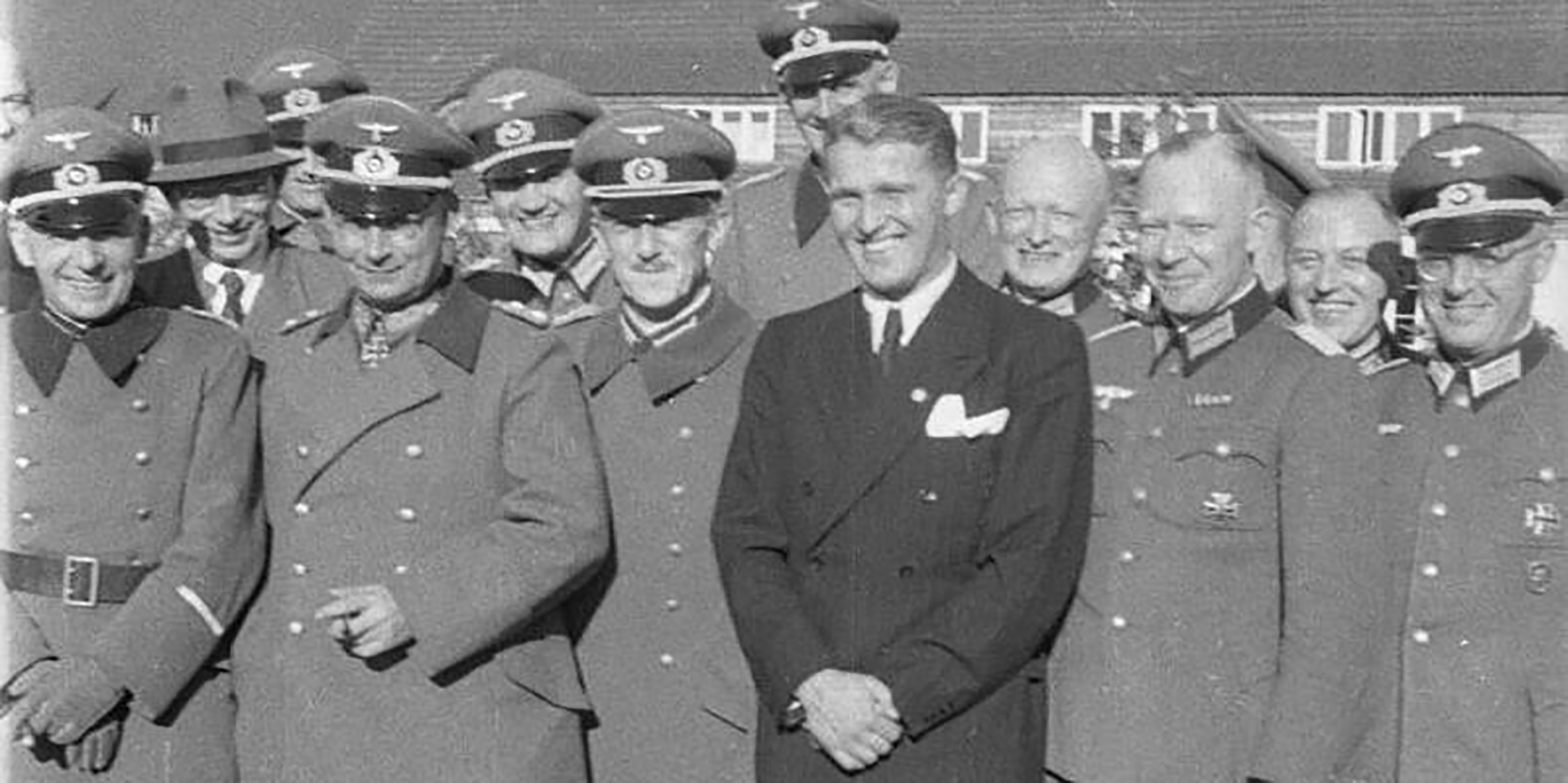Originally published 3 December 2006
In July, 1943, rocket scientist Wernher von Braun traveled to Hitler’s military headquarters in East Prussia to brief his Führer on the A4 Wunderwaffe, or wonder weapon.
Von Braun launched into his spiel: “The bird will carry a ton of amatol in her nose, but will hit the ground at a speed of over 1,000 meters per second, and the shattering force of the impact will multiply the destructive effect of the warhead.”
Hitler interrupted: “I don’t accept that thesis. It seems to me that the sole consequence of that high impact velocity is that…the warhead will bury itself in the ground, and the explosive force will merely throw up a lot of dirt.”
Von Braun returned to the rocket research facility at Peenemünde and ordered a study of the problem. He later recalled: “I’ll be damn if he wasn’t absolutely right. Hitler may have been a bad man, but he surely was not stupid.”
Bad man, indeed!
Even as early as the summer of 1943, it must have been obvious to any German with eyes and ears that Hitler was more than a “bad man.” But von Braun was a rocket scientist with stars in his eyes. He was then, as he remained all his life, deftly expedient at finding governments willing to pay for his experiments.
At the end of the war, von Braun and his research associates were brought to America to lead the US Army’s rocket development program. When the Germans arrived in the sleepy northern Alabama town of Huntsville, in 1950, I was a teenager living right up the road in Chattanooga.
An article in Collier’s magazine reported that “when the Germans came to town, they picked up their library cards before they had their water meters turned on.” A civic orchestra was quickly formed, in which the Germans took a major role. At the center of this cultural excitement was Wernher von Braun, himself a musician and novelist.
A 1957 photo essay in Life magazine showed him with his family — movie- star good looks, thoroughly American, squeaky clean.
Life quoted him as saying: “I get about 10 letters a day. About half come from youngsters who want advice on how to become rocketeers. We tell them to hit math and physics heavily.”
I never wrote von Braun a letter, but I wanted to. He was a real-life Buck Rogers who would lead us into space. In the early 1950s he collaborated with artists from Collier’s magazine to show what the coming space age offered, including trips to the moon and Mars. Those marvelous Collier’s illustrations were no small part of the reason why I studied math and physics.
The Army kept the seamier details of von Braun’s past under wraps. They seem to have been particularly keen that we did not know the rocket scientist had been an honorary officer of the SS, or that thousands of slave workers were murdered at the rocket assembly plant at Nordhausen.
The first skepticism I recall about von Braun’s past was from the humorous songwriter Tom Lehrer, who in the mid-60s wrote a ditty that began:
Gather round while I sing you of Wernher von Braun,
A man whose allegiance is ruled by expedience,
Call him a Nazi, he won't even frown,
"Nazi, Shmazi," says Wernher von Braun.
All of this is a reminder that knowledge is never pure. Where science goes, technology follows, and where technology goes the military is not far behind. A substantial part of basic research is funded by governments with an eye on weaponry. It is the rare scientist that at some point in his or her career is not required to ask: “Is this research for the good or harm of humankind?”
My PhD thesis in physics was on the “Optical Investigation of Molybdenum Films.” Quite frankly, I did the research because it was there, without any notion of what its benefit or harm might be — and from the time the thesis was finished I had nothing more to do with the subject. Did my work find practical application? I heard once that molybdenum films were used as antireflective coatings on the nose cones of missiles. I have no idea if that’s true; for all I know, some aspect of my long happy hours in the solid state physics lab at grad school might have later rained down on a misidentified wedding party in Afghanistan.
I’m not trying to be flip here, or to suggest that research with potential military applications is immoral. Only that scientists, like everyone else, must consider — insofar as they can — the ethical implications of their work.
It was expedient for Werner von Braun to close his eyes to the murderous conditions in which his rockets were manufactured. It was expedient for the US Army to close its eyes to von Braun’s tacit complicity in atrocities. It was expedient for the citizens of Huntsville to close their eyes to the wartime activities of the German scientists and engineers who brought new prosperity to the town. It was expedient for a spacestruck Chattanooga teenager to close his eyes to his hero’s suspect past.
Scientists and engineers are inclined to say: “What politicians and generals do with our work is none of our business.” Knowledge may indeed be morally neutral, but its application can be fraught with moral consequence. Which is why the story of the German rocket scientists is worth keeping in mind.
Once the rockets are up, who cares where they come down?
That's not my department," says Wernher von Braun.



